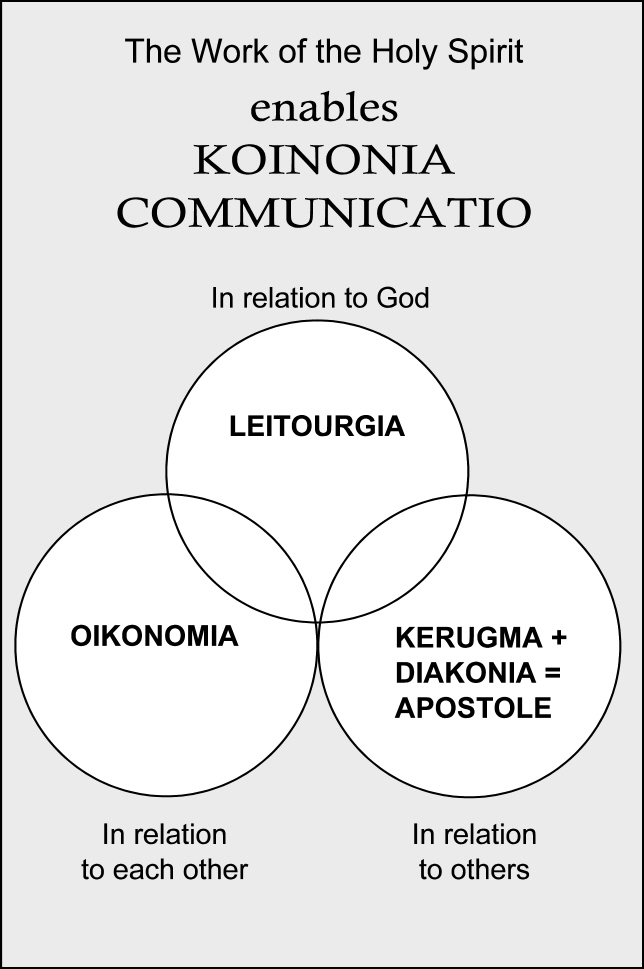By John Cole
|
By John Cole
|
|
. . . if you would like to dig deeper The map of God’s purposes for his local church, which also reveals so clearly the range of the work of the Holy Spirit, has been built round the theological concept of koinonia as St Paul used it in his letters. The three different aspects of this koinonia can also be given theological labels using New Testament words (see OHP 9 below): In relation to God: LEITOURGIA The activities which represent koinonia in terms of our relationship with God can perhaps all be grouped under the heading of ‘leitourgia’. The Orthodox Churches would be very happy to see this word used in this way; the English word ‘liturgy’ suggests far too narrow a picture of formal patterns of worship. In fact, in the New Testament the word is broader still in its scope, describing any work or help or service of others which at the same time implicitly gives honour to God.
In relation to each other: OIKONOMIA The word which sums up koinonia in terms of our relationships with each other is not, as might be expected, ‘fellowship’. This should probably be reserved to describe the informal socialising when church members come together to enjoy themselves - although ‘fellow’ can have the more demanding overtones of a ‘responsible partner’, as in "Fellow of a College". The correct word is surely ‘oikonomia’ - ‘household management’ - so long as it has none of the penny-pinching overtones of the English word ‘economy’!
In relation to others: DIAKONIA + KERUGMA = APOSTOLE Two broad activities sum up the koinonia of the Holy Spirit in terms of our relationship with others. They echo the one-eyed perspectives of churches numbers 3 & 4 (see page 29) ‘diakonia’ (service) - expressing the self-giving love of God; ‘kerugma’ (proclamation) - explicitly making known the message of God and Jesus Christ. Together these are our ‘apostole’, what we are ‘sent out’ to do - a line of thinking which takes us straight back to the wording of the Creed: "One, holy, catholic and apostolic Church". Considering how central a concept it is, it is strange how little you are likely to hear from the pulpit about your ‘apostolate’ - unless, of course, you happen to be a Roman Catholic. It seems the rest of us might be missing something important. 
|